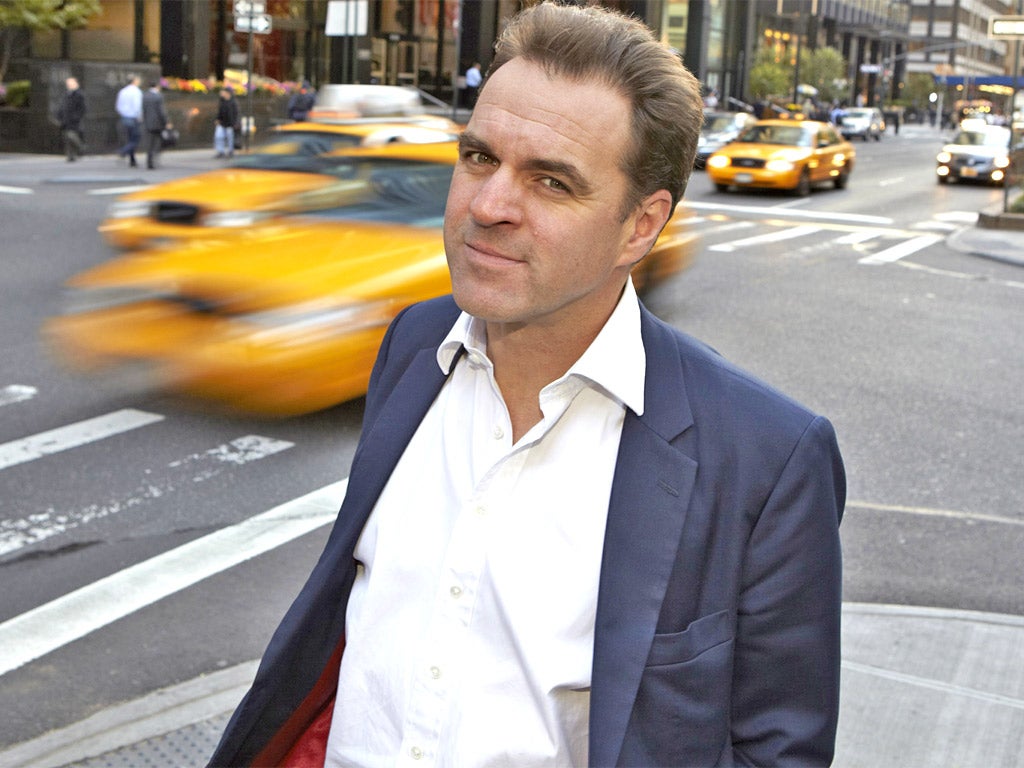The Week in Radio: Ferguson's fighting talk livens up this history lesson

Your support helps us to tell the story
From reproductive rights to climate change to Big Tech, The Independent is on the ground when the story is developing. Whether it's investigating the financials of Elon Musk's pro-Trump PAC or producing our latest documentary, 'The A Word', which shines a light on the American women fighting for reproductive rights, we know how important it is to parse out the facts from the messaging.
At such a critical moment in US history, we need reporters on the ground. Your donation allows us to keep sending journalists to speak to both sides of the story.
The Independent is trusted by Americans across the entire political spectrum. And unlike many other quality news outlets, we choose not to lock Americans out of our reporting and analysis with paywalls. We believe quality journalism should be available to everyone, paid for by those who can afford it.
Your support makes all the difference."Be warned: the view that I am about to state is highly unfashionable," announced Professor Niall Ferguson in his final Reith Lecture on Radio 4. But which one? Was it his observation that Wales, where he owns a cottage beside the sea, is "Scotland-lite"? (I'd pay to see the looks on the faces of the locals next time he pops out for a pint). Or was it the fact that, as an active member of various clubs at Harvard University, Glasgow Academy and Magdalen College, Oxford, he is exhorting us all to join more clubs and thus do our bit to build a stronger civil society? Something tells me that Harvard wouldn't have me, Niall. Or perhaps you think that our lives would be improved if we all took up bridge.
In fact, the controversial view to which Ferguson was building up was that "the best institutions in the British Isles are the independent schools", certainly an interesting assertion coming from an ex-pat currently working at America's most exclusive university.
Ferguson was, of course, patently aware of the ludicrousness of his (highly privileged) position, and indeed, during the ensuing Q&A session, used it to bolster his argument that we need to take an active role in both governing ourselves and educating our children, because if he hadn't had a private education he might not have ended up becoming a pillar of society and the cleverest man on the planet. (To be fair, I'm paraphrasing there. What he actually said was "the most handsome man on the planet". Or was it "successful"? Or "brilliant"? Whatever word he used, you can bet he chants it in the bathroom mirror every morning).
This was, essentially, a re-worked Big Society speech delivered with the affected drama of an am-dram Shakespeare soliloquy, and which made even Michael Gove come over like a big liberal sissy. It was irritating as hell – even the host Sue Lawley seemed to lose patience – and almost caused Twitter to spontaneously combust. All of which made it one of the more satisfying Reith Lectures in recent years. Last year's speaker was Aung San Suu Kyi who spoke about the nature of freedom. She was, of course, serene and poignant and wonderful but let's be honest: she never got the blood pumping. There was, to Ferguson's ire, actual heckling at this year's lecture. I don't know who the BBC are getting in next year but I'm holding out for a full-blown punch-up.
It's not hard to imagine where Ferguson would stand on the debate around the future of the House of Lords – his peerage is probably already in the post. On Tuesday, Shelagh Fogarty broadcast her 5 Live programme from the Upper Chamber, and spent two fascinating hours looking behind the scenes and talking to legislators from across the political divide about what the proposed changes will mean.
It was the Pugin pomp that first struck her, however. 5 Live's chief political correspondent John Pienaar observed that it made the House of Commons "look like a garden shed". Baroness de Souza, the Lords speaker, even let Fogarty sit on the woolsack, a symbol of unity that is stuffed with wool from the nations of the Commonwealth. It was with a mixture of awe at the institution's history and a practical sense of public service that De Souza explained exactly what takes place in the Lords. "You expect it to be all red cloaks and ermine but it isn't," she noted. "It's a hard-working house of Parliament."
Join our commenting forum
Join thought-provoking conversations, follow other Independent readers and see their replies
Comments